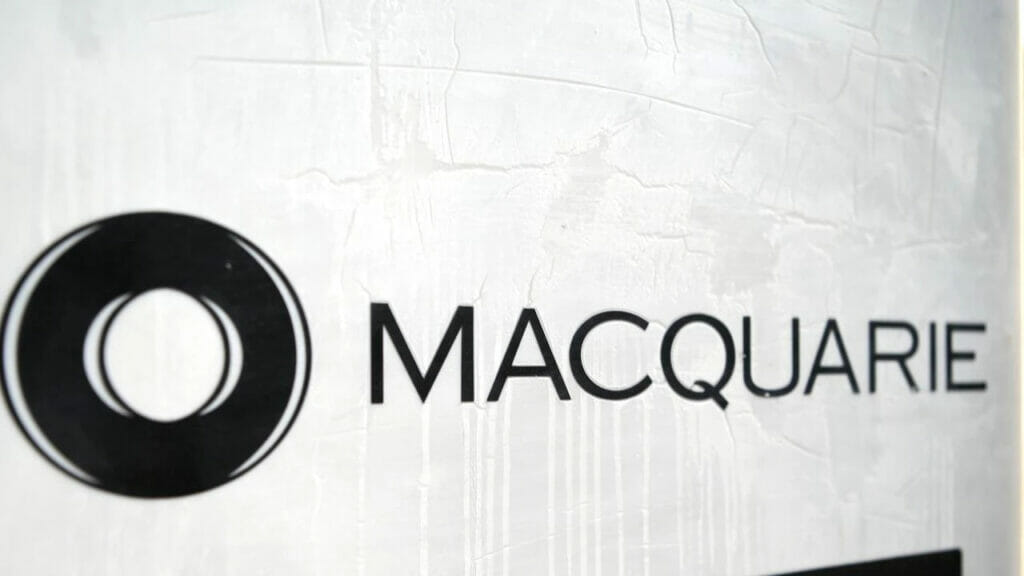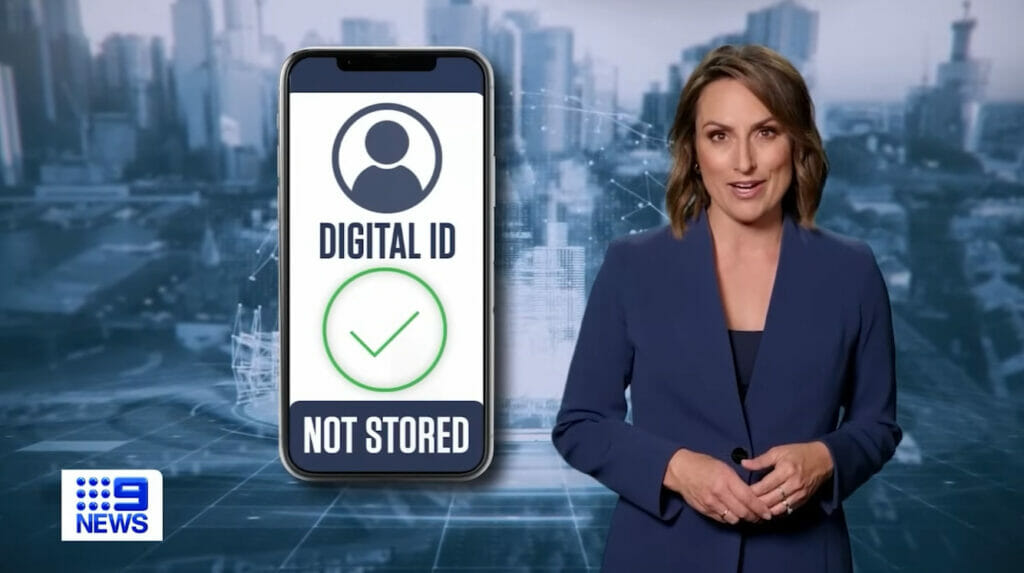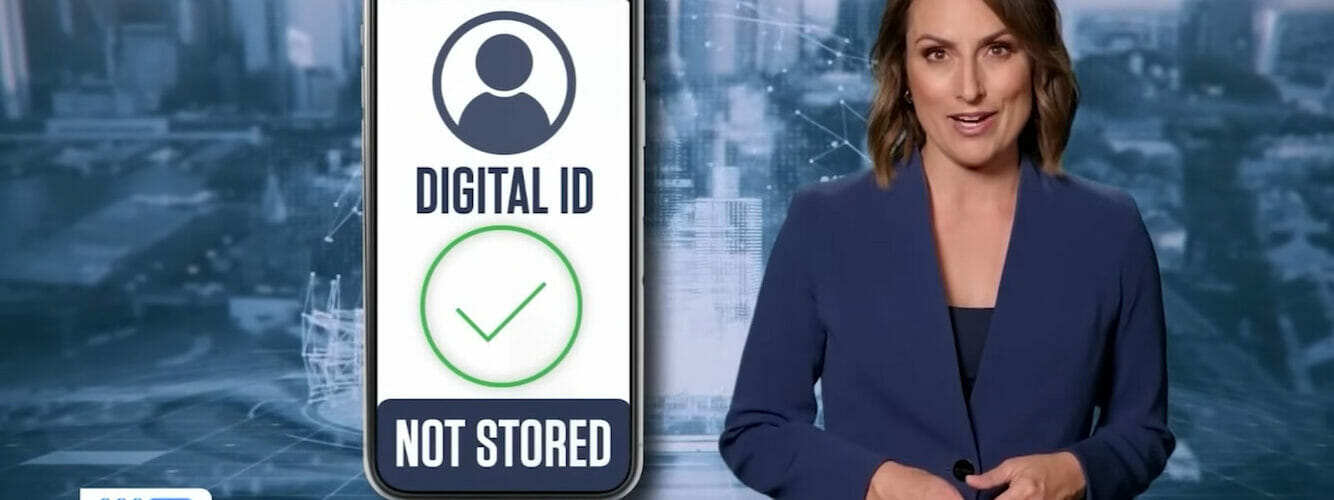Australia continues to press forward and helping to lead the charge in transitioning to a cashless society, completely making the shift to cryptocurrencies, digital IDs, and even implantable biometrics within just a couple of years. Private businesses are even getting in on the action by no longer accepting cash at their storefronts, emulating what some of the largest banks in the nation are doing.
The WinePress published a detailed report in July that explains how Australia is one of the leading nations embarking on making the transition to a totally cashless society, with just 6% of all point-of-sale transactions made in cash in 2022. At the same time four of country’s largest megabanks elected to start limiting and eliminating cash withdrawals at many locations. Already over $1 billion dollars worth of cash has vanished from circulation. Besides supposed convenience, the push for a cashless and contactless ecosphere is also allegedly designed to cutdown on crime and thefts, the experts say.
Since then another large bank – Macquarie Bank – announced earlier this month they plan to scrap cash use at all branches by next year, and by November, 2024, the bank won’t accept cash anywhere.

Between January 2024 and November 2024, we’ll be phasing out our cash and cheque services across all Macquarie banking and wealth management products, including pension and super accounts.
As a digital bank, we’re committed to transitioning to completely digital payments by November 2024 as a safer, faster and convenient way to bank.
The majority of our customers already bank digitally and we’re working very closely to support the less than 1% of our customers who currently use cheques or cash to ensure they have access to other digital payment methods.
The bank said in a statement to clients; and in a separate statement by a spokesperson
On top of this, some businesses in the private sector companies are forbidding cash purchases, sparking an outrage from consumers. Companies like KFC, Starbucks, Krispy Kreme, and more are only accepting card and digital transactions. “Cash advocates,” as 9 News calls them, are not happy and cite their use of physical tender to feel more protected and not have to pay all the extra transaction fees.
Cashless By 2025 And Going Biometric
In roughly less than two years Australia is will be “functionally cashless” and printing money will cease by 2030, according to one expert interviewed by the Australian Broadcasting Corporation (ABC).
Richard Holden, professor of economics at University of New South Wales (UNSW) Business School, told the outlet:
I’d say we’ll be functionally cashless by the end of 2025 — it’ll just be a complete rarity.
But unless the government gets involved to accelerate the process I think we’ll be actually cashless by 2030.
We’re headed towards a cashless society — the only question is how rapidly.
Another way of putting it is how long the last vestiges of cash are going to hang around for, because in many ways we’re pretty close to being cashless.
Australia is pretty high up in the world stakes of not using cash very much. ATMs are disappearing, branches have been closing for a long time, it’s harder to get your hands on cash and there’s less and less need to. Australia’s point-of-sale technology is world-class.
It’s super easy for grandparents to give the grandkids money for their birthday, pay a babysitter or split a restaurant bill. The question is, is the government or the RBA going to kick things along to accelerate [the phase-out of cash].
He said

Furthermore, he claims there are very few genuine use cases for cash “other than illicit acts or people who want to use cash to hide things from people.” He went on to remark:
When I talk about this on the radio there is always someone who calls up and says something like, ‘But when I go and use a prostitute I don’t want my wife seeing my bank statement.’ That’s not a good use case. This is not a sympathetic argument.
[For the very small number of people who genuinely have a need for cash, such as elderly people not able to use digital banking], that can be handled. Ten years ago people said, ‘What about kids with tuckshops?’ Today most primary school tuckshops are digital or almost exclusively digital. You can load $10 onto their tap card.Take a local cafe — if they’re taking bundles of cash they’ve got to have insurance for that, got to create a float in the morning, bundle it up at the end of the day, put it in a night safe.
That all costs money, and it adds to the price or your sandwich or coffee. People don’t have a right to something that everyone else has to pay for. People have a right to healthcare, education, but people don’t have a right to a means of payment when there’s a perfectly viable alternative.
But Mr. Holden has more to stay for the future of the Australian economy: he says biometrics implantable are not too far off either as the replacement for cash. In separate article published by the BBC, the media giant ran a headline titled, “Why cash is no longer king;” followed by the subtext that says, “Future financial transactions will feature facial recognition technology and possibly wearables, hearables and implantables.”
The article’s opening paragraph begins with, ‘Australia’s transition to a truly cashless society is well underway. Experts say it will happen within five to eight years. Others, such as Professor Richard Holden from the UNSW Business School, say it could happen within three years. No more fumbling for plastic money in wallets or metal coins in our bags – a frictionless, cashless future is within our grasp.’
Holden’s plan to phase out cash within three years begins with eliminating $100 notes in the first year and $50 bills in year two. Then it’s about using education and incentives, especially convincing traditional cash users of better options.
But Holden argues the advantages of a cashless society far outweigh the negatives. Many small businesses in Australia, especially cafes, no longer accept coins or notes. He says a cashless society will only lead to a more “honest” tax environment, and the biggest losers will be those who rely on cash deals, especially criminals.
The BBC wrote
Anders Sörman-Nilsson, Swedish-Australian futurist, author and managing director of Thinque, says the old adage that cash is king is dead, though says most people will not stop heaping it and burying it underneath their mattresses. He explained that once paying for things digitally becomes normalized then Australia will truly be considered a cashless society. Also, he says Australians have grown sick of passwords and PINs, and therefore will be looking to adopt something new, of which includes facial recognition and biometric implants.

Humans never stopped bartering even after the advent of coins and cheques. It’s more likely, however, that cash will continue to fade into oblivion.
Australia will become virtually ‘cashless’ when consumers and businesses realise the friction and frustration involved with handling cash and demand seamless payments. When the payment transaction becomes a non-event – when it automatically happens as you exit the restaurant after a delicious meal – then we’re living in a ‘cashless’ society.
Seamless, biometric payments are the key drivers to moving beyond the old idea of credit cards or cash as a physical product, to a digital service that lives in your mobile wallet or smartphone.
Your intimate payment relationship will be with your wearable, hearable or implantable digital devices, which you and artificial intelligence will train to select the right card for the right purchase. This could be for, say, frequent flyer, foreign exchange or payment term optimisation.
Rather than thinking about which device will be the single source of truth, payment technologies will embed into the ecosystem of what you’re wearing. Other than smartphones, if we look at which hearable and wearable devices have reached mass adoption and low social stigma, the top three would be spectacles, earphones and wrist watches.
We’re already paying with our wrist watches, earpods have the capacity for conversational commerce, and in the future ordinary spectacles might become augmented with conversational payment aptitude.
As long as you’re happy to carry a chip in your body or on your body, you can proudly claim you’re a walking ATM.
He said; with the BBC adding, ‘He says the rise of “conversational commerce” and advances in facial recognition technology will ensure consumers become increasingly comfortable scanning their bodies as an identification method. Would you like biochips with that?’
Holden concurs with this, adding:
We’ve already seen that with Face ID on a variety of Apple products, notably the iPhone and how that translates into, say, Apple Watch. Facial recognition is already an incredibly powerful tool.
Look at how financial institutions are willing to let you access your account based on facial ID without putting in another code. They are showing a high degree of confidence already. There will be a variety of biometric things that provide people with a lot of security and comfort.
Economics Professor Richard Werner, the man who introduced the economic philosophy of “Quantitative Easing” (QE1 and QE2), and has been recognized by the World Economic Forum for his accomplishments, explained in an insightful interview that central bankers would love to have and are working get microchips in people, so they can retroactively receive central bank digital currencies (CBDCs) via the chip. But in order to enforce the CBDCs the central bankers first need to implement digital IDs.
But what was already ready around 2015, is the ultimate goal – what they really want, apparently, I was told by a Central Banker – is CBDC looks like a small grain of rice that they want to put under your skin, which is my view a violation of human dignity. And they realize there is a hurdle to get people to accept this.
You will get 2 000 Euros into your account every month. But of course, to run this efficiently [they’ll say:] ‘We need to use the latest technology so you need the CBDC chip implant.’
There is an argument to be made, and that is the entire Covid scam may have been run in order just to prepare things for the CBDCs and the real goal, or the big prize to them, [are] the CBDCs.
There is one step before then: they need digital IDs.
Werner explained, referencing the vaccine passports that did not make sense, he said, and how that framework is now being used as the basis for the new digital IDs and global health passports; for which they and the CBDCs will be interlinked, he said.
The Push For Digital IDs
Speaking of digital IDs, Australia is continuing to nudge citizens into voluntarily accepting one.
In December of last year the Australian federal government released their digital ID called “MyGov,” with the idea of merging digital banking, documents such as license and medical cards, access government and private sector services, vaccine passports, and more, all into one device.

While roughly 10.5 million Australians are using MyGov for government services, excluding others such as ConnectID for my private sector operations, the two do not work together. Now, according to Australia’s 9 News, government regulators are working to create a new digital ID system that will conceptually morph the two into one.
Federal Finance Minister Katy Gallagher explained, “making it easier to essentially live your life online, but with the minimum amount of sharing of documents.”

News 9 listed a number of different documents that citizens would normally have to provide to perform certain purchases or agreements, and those entities store that data; but with a digital ID, they say, will combine all that into encrypted digital passport that companies and other parties cannot store.
It’s all you’ll need to prove who you are.
An anchor for the network said
Other Australian provinces have been developing their own unique digital IDs as well. In March New South Wales introduced one of the most advanced and innovative ones to date, setting the general standard for other countries; and then officials in Victoria said theirs will be coming out by 2024.
AUTHOR COMMENTARY
No “tinhat conspiracies” here: this is mainstream media openly declaring the initiative and where it’s going, reiterating the impetus of this formality. As I said in another report, “The Australians have dug their own graves with this one. Instead of resisting the takeover they have embraced. But that is not surprising when consider – if the data is to be believed and taken at face value – that around or over 9/10ths of the country got vaccinated in this last go around. They are slaves of their own oppression.” They have only themselves to blame for this takeover, though most of them don’t seem to be complaining too much. Sheep to the slaughter.
As the bird by wandering, as the swallow by flying, so the curse causeless shall not come.
Proverbs 26:2
If the Australian media and government is hammering home that they are going to become a cashless society, and all the great benefits of a digital ID, then that tells me their central bank (Reserve Bank of Australia (RBA)) is ready to launch their CBDC on the people much sooner than expected. Of course, they say they are not sure if they are going to do one and were trialing its functionality, but we know better.
Even so, a mass trigger even will be needed to cause the majority of people to hop on this bandwagon, which will be coming in short order, sometime and throughout 2024 around the world I suspect.
And of course, based on the media’s bold and overt statements, this clearly screams of the coming mark of the beast system, laying more necessary bricks in that foundation.
[16] And he causeth all, both small and great, rich and poor, free and bond, to receive a mark in their right hand, or in their foreheads: [17] And that no man might buy or sell, save he that had the mark, or the name of the beast, or the number of his name. [18] Here is wisdom. Let him that hath understanding count the number of the beast: for it is the number of a man; and his number is Six hundred threescore and six. Revelation 13:16-18
See the “smart mark” in a Netflix cartoon called “Stretch Armstrong and the Flex Fighters:”
[7] Who goeth a warfare any time at his own charges? who planteth a vineyard, and eateth not of the fruit thereof? or who feedeth a flock, and eateth not of the milk of the flock? [8] Say I these things as a man? or saith not the law the same also? [9] For it is written in the law of Moses, Thou shalt not muzzle the mouth of the ox that treadeth out the corn. Doth God take care for oxen? [10] Or saith he it altogether for our sakes? For our sakes, no doubt, this is written: that he that ploweth should plow in hope; and that he that thresheth in hope should be partaker of his hope. (1 Corinthians 9:7-10).
The WinePress needs your support! If God has laid it on your heart to want to contribute, please prayerfully consider donating to this ministry. If you cannot gift a monetary donation, then please donate your fervent prayers to keep this ministry going! Thank you and may God bless you.








Australia is arguably more Godless than America, super liberal and “progressive”. Australians gave up their King James Bibles and their guns; therefore, the Jesuits have open control.
Australia has become a cautionary tale.
Also, I saw a video of a chick tract called “Kings Of The East” and I learned that China calls Australia “New China,” and the Chinese Communist Party has been infiltrating and slowly but surely gaining power. I bet Australian troops will be part of the 200 million man army and so will New Zealand.
12 For the nation and kingdom that will not serve thee shall perish; yea, those nations shall be utterly wasted.
Isaiah 60:12